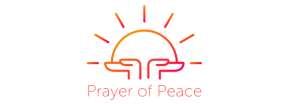Lying, paranoia and conspiracy are defining features of a totalitarian society. What hope is there for a brand new era, in the aftermath of an administration that has relied on all three?
“I WON THE ELECTION!” Donald Trump tweeted in the early hours of 16 November 2020, 10 days after he lost the election. At the same time, Atlantic magazine announced an interview with Barack Obama, in which he warns that the US is “entering into an epistemological crisis” – a crisis of knowing. “If we do not have the capacity to distinguish what’s true from what’s false,” Obama explains, “by definition our democracy doesn’t work.” I saw the two assertions juxtaposed on Twitter as I was finishing writing this essay, and together they demonstrate its proposition: that American democracy is facing not merely a crisis in trust, but in knowledge itself, largely because language has become increasingly untethered from reality, as we find ourselves in a swirling maelstrom of lies, disinformation, paranoia and conspiracy theories.
The problem is exemplified by Trump’s utterance, which bears only the most tenuous relation to reality: Trump participated in an election, giving his declaration some contextual force, but he had not won the election, rendering the claim farcical to those who reject it. The capital letters make it even funnier, a failed tyrant trying to exert mastery through typography. But it stops being funny when we acknowledge that millions of people accept this lie as a decree. Their sheer volume creates a crisis in knowing, because truth-claims largely depend on consensual agreement. This is why the debates about the US’s alarming political situation have orbited so magnetically around language itself. For months, American political and historical commentators have disputed whether the Trump administration can be properly called “fascist”, whether in refusing to concede he is trying to effect a “coup”. Are these the right words to use to describe reality? Not knowing reflects a crisis of knowledge, which derives in part from a crisis in authority.
